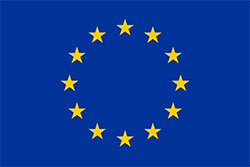Michael Novak (1933-2017) undertook the task of reconciling capitalism with Christian values by defending this system from the perspective of morality. Advisor to St. John Paul II and correspondent at the Second Vatican Council, Michael Novak was an American philosopher and theologian whose work has had a great impact on the economic thought of the last decade.
At a time in history when socialism was triumphing in the world, Novak understood the importance of reconciling Christian values with economic freedom. Novak’s great contribution is The Spirit of Democratic Capitalism (1982), which proposes the model of “democratic capitalism” based on freedom and social responsibility. Concepts that at first glance may seem opposed are in fact two sides of the same coin since freedom always implies responsibility for one’s actions. For Novak, the market is not an end, but a means, and as such, it must be placed at the service of human benefit[1]. This point is reaffirmed by John Paul II in Centesimus Annus[2] when he states that companies constitute a group at the service of society[3].
Novak’s perspectives expanded our conceptual grasp of economic liberty beyond dry formulas to include a more complete picture of the creative, human, and virtuous nature of entrepreneurship[4]. A vision he inherits in some ways from Ludwig Von Mises (1881-1973) and Israel Kirnzer (1930) and is fully consonant with the “creative human action” developed by John Paul II in his doctoral thesis Person and Action (1969)[5]. That human action is the entrepreneurial initiative of individuals and their consumption and investment decisions in the market. This positive vision of the market is the foundation of his theory of democratic capitalism: a social order favorable to inventiveness, discovery, and entrepreneurial creativity[6].
In this sense, Novak understood capitalism as a gear composed of three parts[7]:
- A political system composed of governmental institutions.
- A moral/cultural system composed of schools, churches and.
- An economic system composed primarily of businesses.
Each of these parts interacts in such a way that each system controls the other and they need each other to function properly. Thus, Novakian capitalism is not a set of formal principles, but has a moral content: all decisions and actions that take place in the market have a meaning. Individuals, influenced by the moral/cultural system, through their consumption or investment decisions, influence the activity of companies, making it not a “ruthless system” but a system that pivots around morality.
Anyone could argue that the vision provided by the American thinker is naïve or idealistic, however, Novak, in one of his most famous quotes, acknowledges how capitalism, like any human institution, is not without flaws:
“Capitalism is neither the Kingdom of God nor without sin. Such hope as we have for alleviating poverty and for removing oppressive tyranny – perhaps our last, best hope – lies in this much despised system“[8]
Novak’s work shows a notable influence of the Austrian thinker par excellence F.A. Hayek (1899-1992), and in turn a clear influence of the School of Salamanca, of which we spoke in last month’s article. Hayek also inspired John Paul II in the writing of Centesimus Annus, as Novak himself, who witnessed their meeting, revealed[9].
Novak’s contribution is yet another example of the concern for morality in the field of economics, demonstrating that they are not watertight compartments. Thus, this reconciliation between Christian values and capitalism can guide us in the consumption and investment decisions we make, since it is these decisions that control the activity of companies.
[1] Novak, Michael, Juan Pablo II: La Nueva Ética Empresarial, 1992. Available at: https://www.ancmyp.org.ar/user/CONTINUACION-ANALES/14_TOMO%20XXI.PDF
[2] Acton Institute, Autor Michael Novak, 2023. Available at: https://www.acton.org/about/author/michael-novak
[3] Pope John Paul II, Centesimus Annus, 1991, n.35. Avbailable at: https://www.vatican.va/content/john-paul-ii/en/encyclicals/documents/hf_jp-ii_enc_01051991_centesimus-annus.html
[4] Robert, James M., Michael Novak, Friend of Economic Freedom, 2017, Heritage Foundation. Available at: https://www.heritage.org/economic-and-property-rights/commentary/michael-novak-friend-economic-freedom
[5] Huerta de Soto, Jesús., La doctrina social de la Iglesia Católica y la aportación de Kirzner, 2023. Available at: https://www.jesushuertadesoto.com/articulos/articulos-en-ingles/ethics-capitalism/6-the-social-doctrine-of-the-catholic-church-and-kirzners-contribution/
[6] Robert, James M., Michael Novak, Friend of Economic Freedom, 2017, Heritage Foundation. Available at: https://www.heritage.org/economic-and-property-rights/commentary/michael-novak-friend-economic-freedom
[7] Tiemstra, John P. “Economic Analysis and the Spirit of Democratic Capitalism” CrossCurrents, vol. 43, no. 4, 1993, pp. 545–49. Available at: http://www.jstor.org/stable/24459455
[8] Novak, Michael, The Spirit of Democratic Capitalsim, 1982.
[9] Huerta de Soto, Jesús., La doctrina social de la Iglesia Católica y la aportación de Kirzner, 2023. Available at: https://www.jesushuertadesoto.com/articulos/articulos-en-ingles/ethics-capitalism/6-the-social-doctrine-of-the-catholic-church-and-kirzners-contribution/








